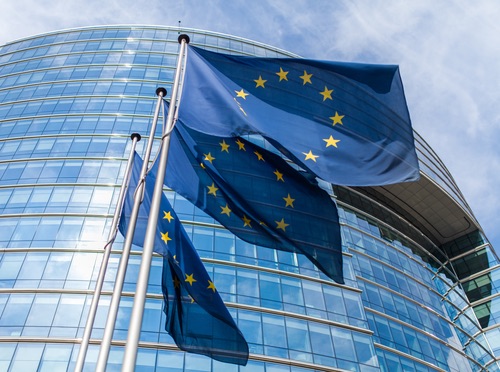“Taking licensing decisions away from the industry participants that understand new technologies best, and concentrating them in the ill-equipped EU Intellectual Property Office, would have slowed the pace of European innovation.” – Frank Cullen, C4IP statement
 The European Commission yesterday announced that it is withdrawing a controversial proposal for regulating standard essential patents (SEPs).
The European Commission yesterday announced that it is withdrawing a controversial proposal for regulating standard essential patents (SEPs).
The Commission officially announced the proposal in April 2023, although it was leaked well before that. The draft rules were purportedly meant to repair a system that “has suffered from a lack of transparency, predictability, and lengthy disputes and litigation.” Communication on standard-essential patents.
The framework would have granted significant regulatory power to the European Union Intellectual Property Office (EUIPO) to intervene in commercial licensing disputes over telecommunications and other standardized technologies that are covered by SEPs. Those responsibilities would have been housed in a newly-established “competence center” at the EUIPO charged with maintaining a register of SEPs, conducting so-called “essentiality checks” of patents registered with the EUIPO as SEPs, and administering fair, reasonable and non-discriminatory (FRAND) royalty rates as determined by the agency in lieu of litigation. Many felt the EUIPO, which is the EU’s main agency for registering trademarks, lacks the patent law expertise required to determine whether a claimed technology is essential to a standard.
IP stakeholders quickly expressed concerns about the proposal, with Professor of Law at George Mason University’s Antonin Scalia Law School Adam Mossoff warning it “will destabilize the global telecommunications market” and IPWatchdog CEO & President Gene Quinn proclaiming it “will render meaningless FRAND… licensing promises in favor of authoritarian decrees.”
The Commission’s communication published yesterday said the reason for withdrawing the proposal is: “No foreseeable agreement – the Commission will assess whether another proposal should be tabled or another type of approach should be chosen.”
The Council for Innovation Promotion (C4IP) today applauded the move. Frank Cullen, C4IP executive director, said “the withdrawal is a victory for inventors everywhere, especially small businesses. The proposal would have enabled large companies within industries to collectively determine royalty rates, including artificially low fees for small firms that develop new technologies.”
According to Cullen, the Commission’s own research did not support the proposed changes.
“Taking licensing decisions away from the industry participants that understand new technologies best, and concentrating them in the ill-equipped EU Intellectual Property Office, would have slowed the pace of European innovation,” Cullen added.
, Vice President of Communications and Marketing at Nokia, also posted a statement on LinkedIn that welcomed the withdrawal and said, while the company shared the Commission’s objectives of transparency and efficiency, “the proposed regulation was flawed and would not have delivered on these objectives. Instead it would have had an adverse impact on the global innovation ecosystem, in particular the incentives for European companies to invest billions of euros each year in R&D, for European leadership in 5G and 6G, and for Europe’s future competitiveness and resilience.”
Image Source: Deposit Photos
Author: sashk0
Image ID: 35711349








